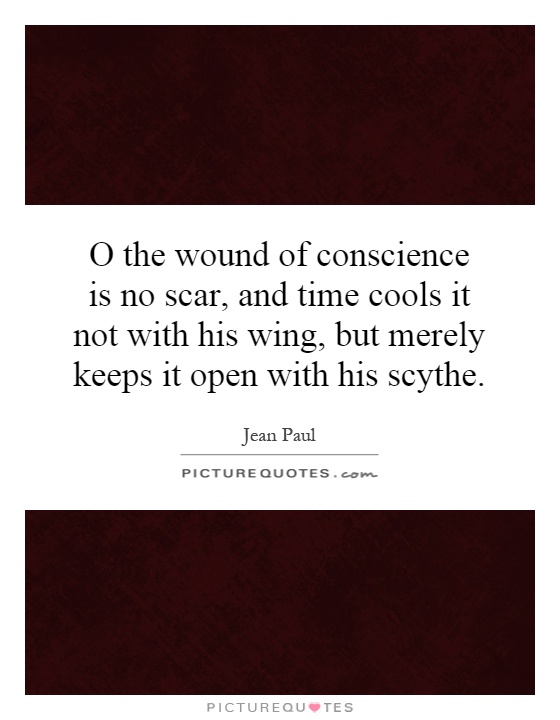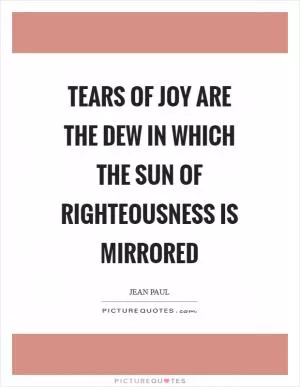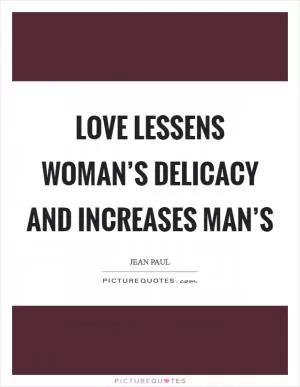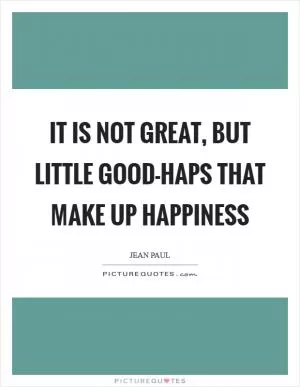O the wound of conscience is no scar, and time cools it not with his wing, but merely keeps it open with his scythe

O the wound of conscience is no scar, and time cools it not with his wing, but merely keeps it open with his scythe
Jean Paul, a German Romantic writer known for his deep and introspective works, often explored the themes of guilt, conscience, and the passage of time in his writings. In his novel, "Titan," Jean Paul delves into the idea that the wound of conscience is not something that can be easily healed or forgotten. He suggests that the pain of guilt is not like a physical scar that fades over time, but rather a deep and lasting wound that remains open and raw.The quote, “O the wound of conscience is no scar, and time cools it not with his wing, but merely keeps it open with his scythe,” captures the essence of Jean Paul's exploration of the human psyche and the complexities of moral responsibility. Conscience, in Jean Paul's view, is not something that can be easily appeased or ignored. It is a constant presence, a nagging reminder of past wrongs and moral failings.
Time, often seen as a healer of wounds, is portrayed in Jean Paul's quote as a relentless force that does not offer solace or relief. Instead of soothing the pain of guilt, time only serves to keep the wound of conscience open and raw. The scythe, a symbol of death and destruction, represents the relentless passage of time and its ability to cut through the layers of denial and self-deception that often accompany feelings of guilt.
Jean Paul's exploration of the wound of conscience speaks to the universal human experience of grappling with moral dilemmas and the consequences of our actions. He suggests that true healing can only come through facing our guilt head-on, acknowledging our mistakes, and striving to make amends. The wound of conscience, in Jean Paul's view, is a reminder of our shared humanity and the need for compassion, forgiveness, and redemption.












 Friendship Quotes
Friendship Quotes Love Quotes
Love Quotes Life Quotes
Life Quotes Funny Quotes
Funny Quotes Motivational Quotes
Motivational Quotes Inspirational Quotes
Inspirational Quotes